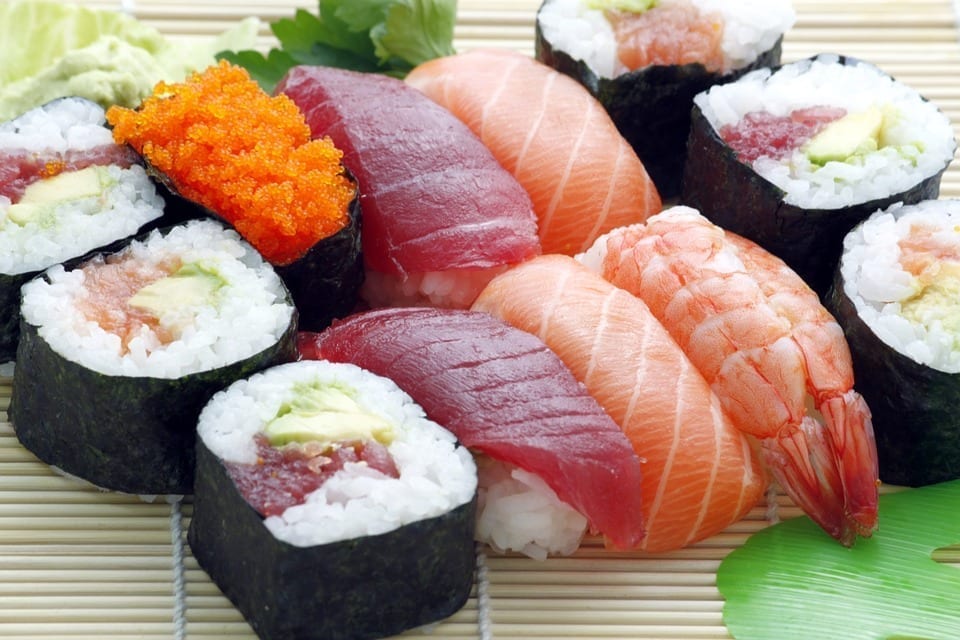I know we’re all used to a certain level of lies coming out of Washington, but from restaurants? There’s a basic trust with purveyors of noms that what we order from the menu will be the food that shows up on our plates. Not necessarily so, according to an article from last week’s Washington Post investigating potential food fraud.
I know we’re all used to a certain level of lies coming out of Washington, but from restaurants? There’s a basic trust with purveyors of noms that what we order from the menu will be the food that shows up on our plates. Not necessarily so, according to an article from last week’s Washington Post investigating potential food fraud.
Scientists at George Washington University’s Milken Institute School of Public Health performed DNA tests on 12 seafood dishes from six different seafood restaurants with locations in the DC area to see if the type of critter listed on the menu was actually the dish being served up to patrons. They found that about a third of the dishes had something (incorrectly) fishy about them. Unlike some of the whoppers coming from our elected representatives, though, these were along the lines of little white lies.
Before you start thinking of filing suit over food fraud, though, it’s worth mentioning that the flim flam fish weren’t significantly different from the species they were supposed to be. For instance, a dish advertised as rock shrimp tempura actually contained whiteleg shrimp. While the whitelegs are a farmed variety, cheaper than rock shrimp, it wasn’t as if the switcheroo was as dangerous as subbing out mercury-laden tilefish for good red snapper, or Coliform tainted rice.
More serious food fraud is an international problem. In North America, sketchy seafood is the most common fakery. A study out of UCLA and Loyola Marymount University discovered that half of the sushi sold in Los Angeles is mislabeled. Expensive “white tuna” is quite often escolar, a fish similar in taste, color and texture to white tuna but which contains gempylotoxin, a substance that the FDA says can cause gastric distress if you eat more than a few ounces. Another common bait-and-switch is passing off farmed fish as wild caught. Some folks might not mind, but others could object to the higher degree of antibiotics in farm-raised fish, and the environmental costs involved with raising them. While many people do choose to eat farmed fish, there’s still the issue of paying a premium and getting something different from what you expect in return.
Around the world, other commonly faked foods include “olive” oil and alcoholic beverages. However, there’s a long tail of food fraud including products you may not have considered, such as caviar that contained no animal DNA, lobster bisque that contained no lobster, or basic, “why would anyone fake that?” items like mineral water.
Seafood fraud is on the rise, posted by CBS Evening News
While everyday consumers may not have the “perfect knowledge” that a truly free market requires to function optimally, that doesn’t mean we have to shrug, mutter caveat emptor, and deal with food fraud as the way the world works. One of the roles of government is to protect the people from businesses and unscrupulous individuals who perpetrate crimes like this. At least, it should be.
This is why the ideology of the party and politicians in control matters. Are they the sort that would strengthen protections to help insure that the food we’re buying and eating really is what the sellers claim it is? Or are they the sort that weaken protections in order to “grow the economy” and “free the markets” by unleashing businesses from “over-burdensome regulations,” allowing them to sell shadier products to anyone trusting enough to trade money for them? After all, as the saying goes, there’s a sucker born every minute – and each one of them is an economic opportunity for companies if they’re allowed to get away with it.
One way to reduce the likelihood of food fraud is to re-localize food production and consumption. It’s harder (and worse for business) to pull a fast one on our friends and neighbors than it is in a faceless, globalized foodstream. Lacking this, it means we are forced to trust rule of law to keep us safe.
Ideally, the lies coming out of Washington would be mild ones restricted to seafood restaurants, instead of big ones from the organization we should be able to trust to protect us against food fraud and foolery from businesses and shady practitioners here and around the world who seem out to feed us something fishy that we can’t quite figure out.


Join the conversation!